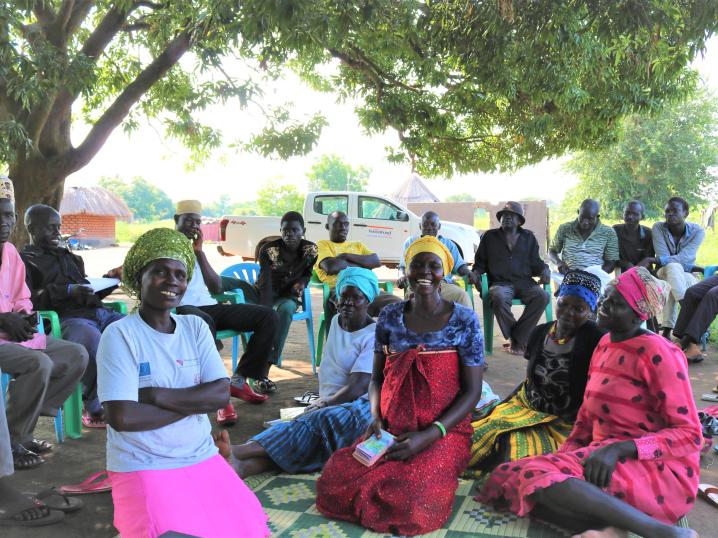Financial Inclusion for Ugandan Refugees

Mercy Ainomugisha, CEO of VisionFund Uganda shares perspective on expanding financial inclusion efforts among refugees and host communities
As households in the refugee settlements in Uganda continue to face the everyday challenges of reviving and improving their livelihoods, access to financial services becomes essential for their survival. In 2018, VisionFund Uganda, partnering with Microfinanza, undertook a baseline study to explore the possibility of extending financial services to the refugees and their host communities in the West Nile region of Uganda.
The results from the study showed that it was indeed viable to provide financial services to the refugees and the host communities, especially in those areas where there was limited or no presence of formal financial institutions. Consequently, in 2019, VisionFund Uganda designed a specific product - the Savings Group Linkage (SGL) Loan which was tailored to the needs of the refugees. The SGL is a credit facility that is offered to Refugee Savings Groups as a lump sum rather than to individual members in the group. With this product, the beneficiaries are able to engage in various productive and profitable business ventures which have improved their livelihoods. This was followed by opening of physical branches in the Moyo and Yumbe towns and field offices in Arua and Adjumani to support the scaling of financial services among the refugees and the host communities in West Nile.
To deliver this product more effectively and efficiently, we leveraged digitization; specifically, mobile banking and Open Data Kit (ODK) solutions; and the results have since been amazing! Currently we serve over 15,000 clients in more than 600 savings groups, with a loan portfolio in excess of $400,000 and a repayment rate of about 96% per month. 76% of these clients are women and more than 50,000 children have been impacted within the West Nile region. Additionally, we have invested in financial literacy to equip the refugees with basic financial knowledge; such as record-keeping, financial management, managing their loan repayment and entrenching the culture of savings - in addition to World Vision’s resilience and livelihood initiatives.
Our next steps include digitizing the saving groups to allow for linkages to financial institutions, to mobile network operators, to improve record-keeping and reporting and also to roll out the product in other areas. Available research shows that there are over 1.4 million refugees currently hosted in Uganda, with 92% of them living in settlements alongside the local communities, mainly in Northern and West Nile regions of Uganda.
We see a huge opportunity for VisionFund Uganda to further deepen and broaden our impact among the refugees and the host communities and expanding financial inclusion to this vulnerable group.